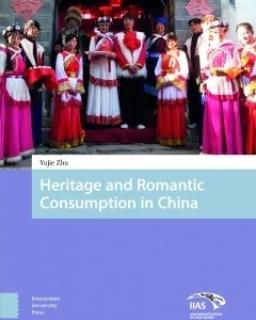
Abstract
The drums beat, an old man in a grand robe mutters incantations and three brides on horseback led by their grooms on foot proceed to the Naxi Wedding Courtyard, accompanied, watched and photographed the whole way by tourists, who have bought tickets for the privilege. The traditional wedding ceremonies are performed for the ethnic tourism industry in Lijiang, a World Heritage town in southwest China. This book examines how heritage interacts with social-cultural changes and how individuals perform and negotiate their identities through daily practices that include tourism, on the one hand, and the performance of ethnicity on the other. The wedding performances in Lijiang not only serve as a heritage ‘product’ but show how the heritage and tourism industry helps to shape people’s values, dreams and expectations. This book also explores the rise of ‘romantic consumerism’ in contemporary China. Chinese dissatisfaction with the urban mundane leads to romanticized interests in practices and people deemed to be natural, ethnic, spiritual and aesthetic, and a search for tradition and authenticity. But what, exactly, are tradition and authenticity, and what happens to them when they are turned into performance?
File attachments
| Attachment | Size |
|---|---|
| Heritage%2520and%2520Romantic%2520Consumption%2520in%2520China%2520Book%2520Flyer%25202018%2520with%2520discount.pdf(443.81 KB) | 443.81 KB |